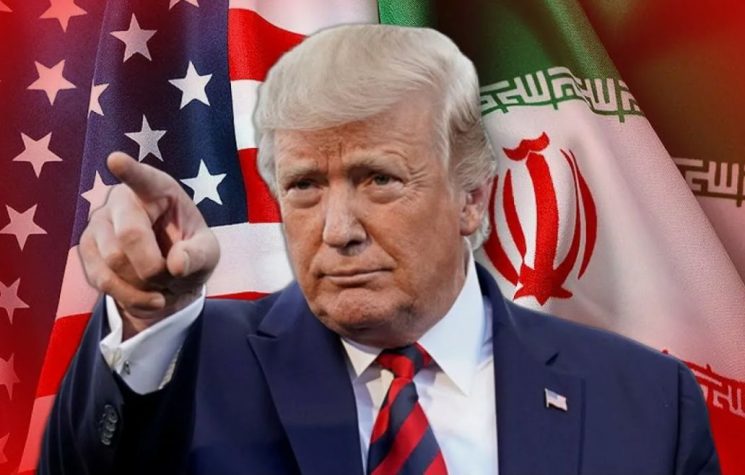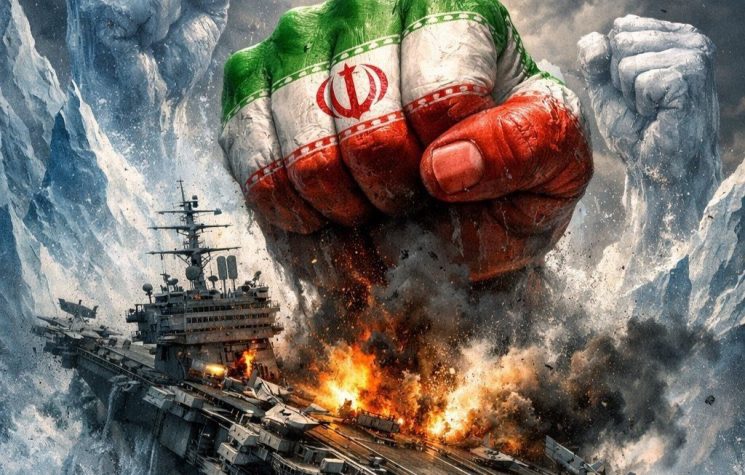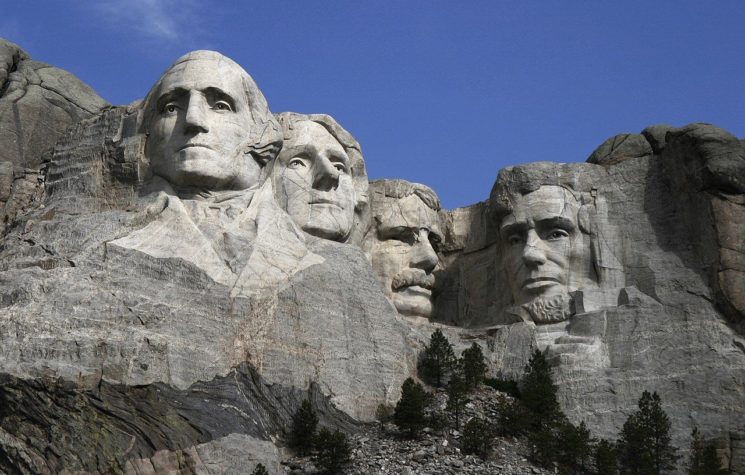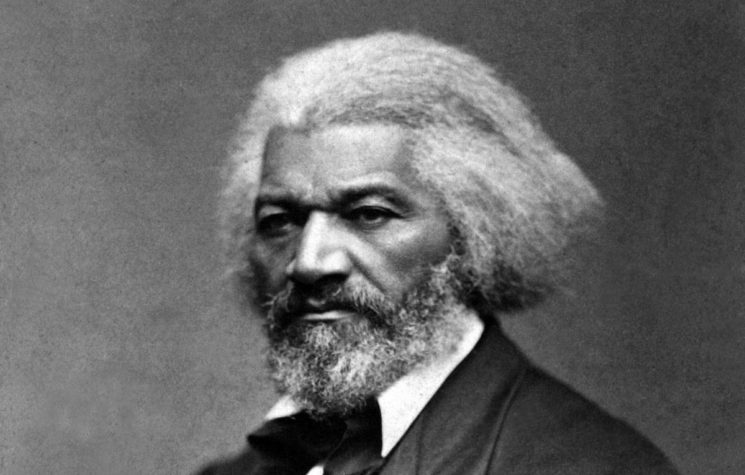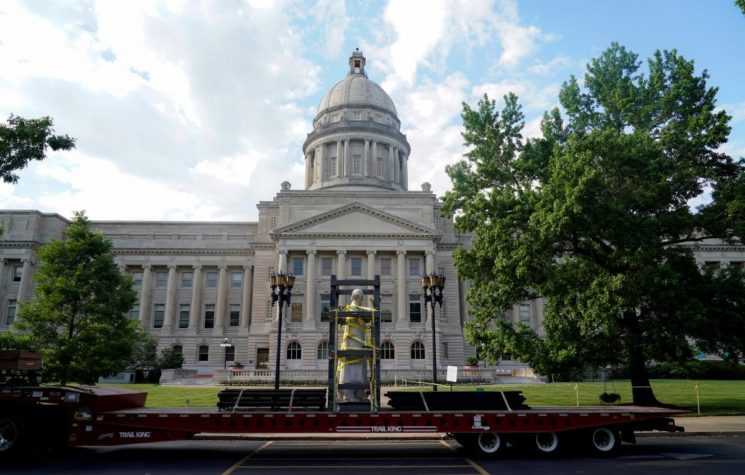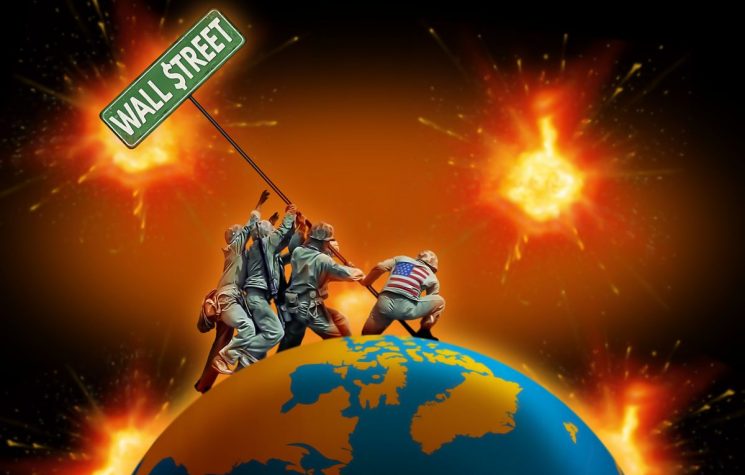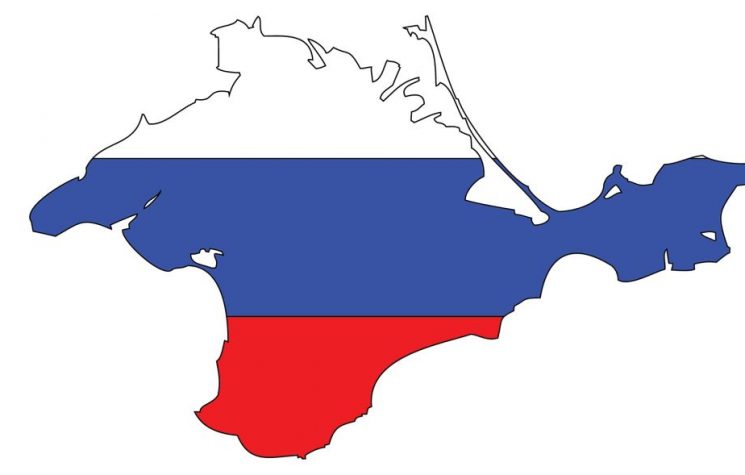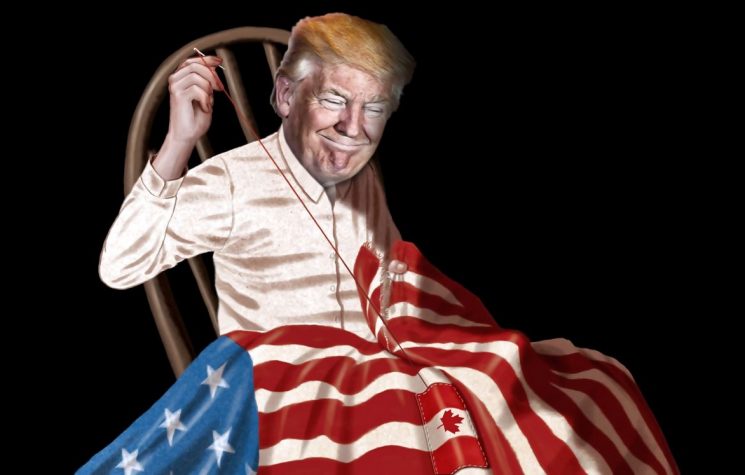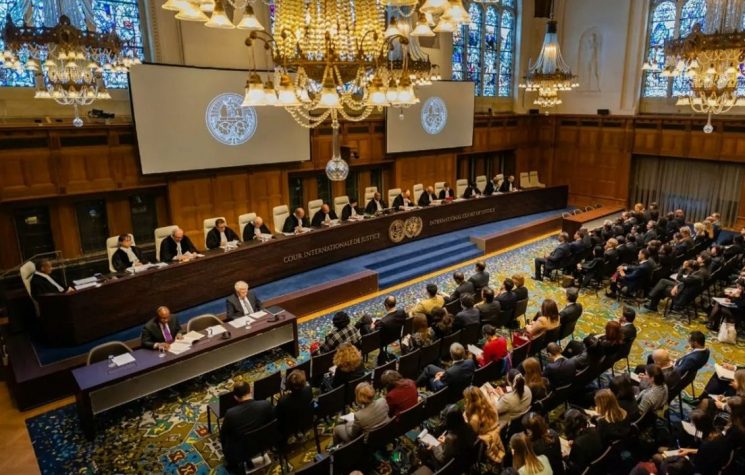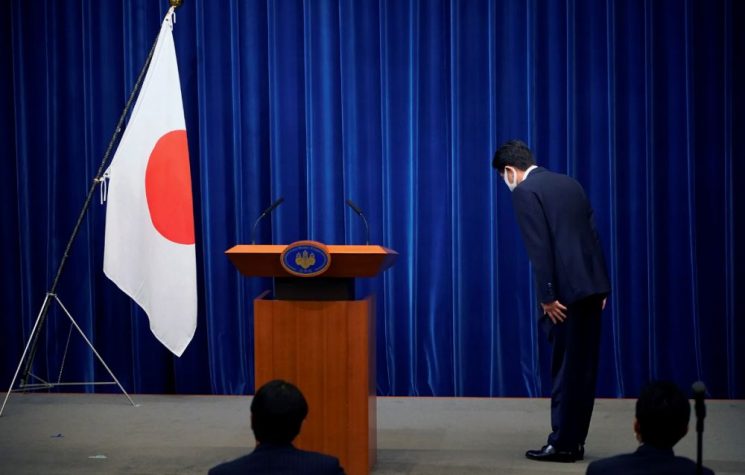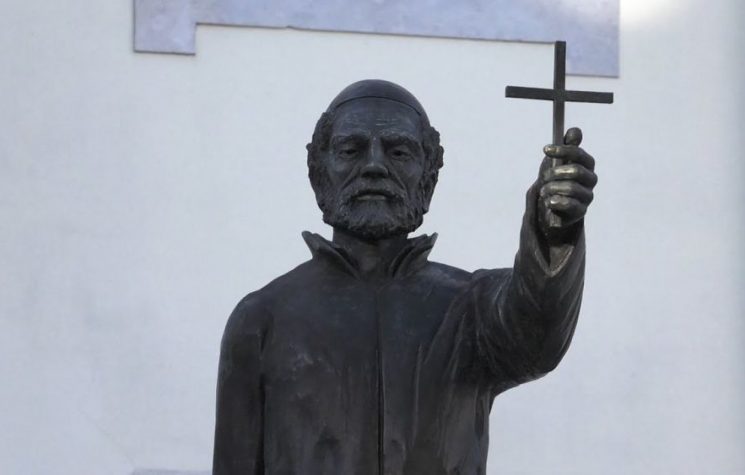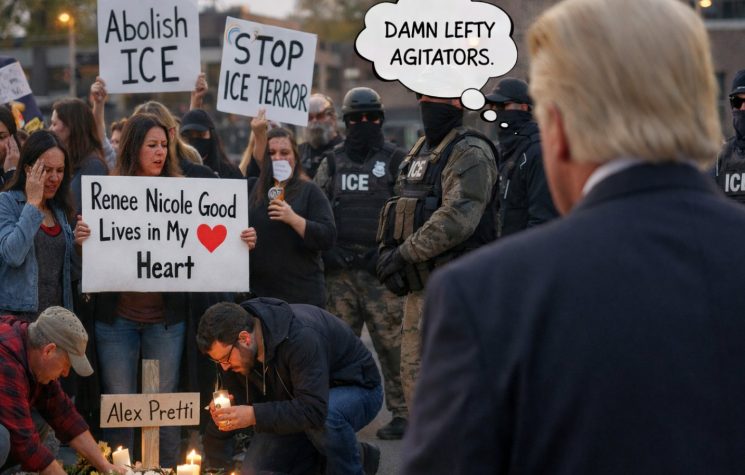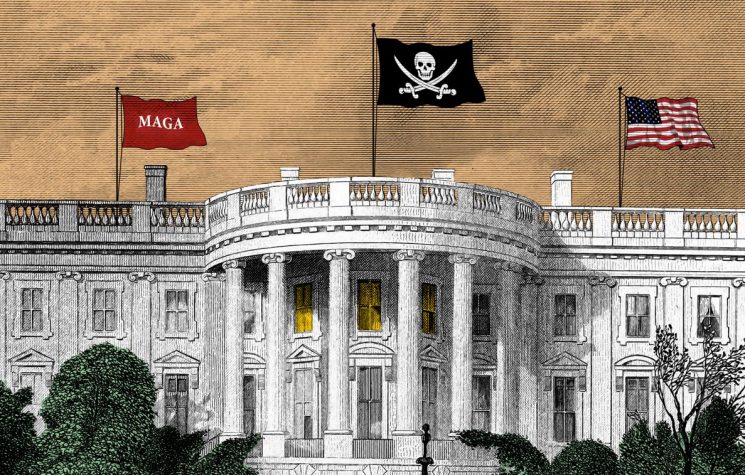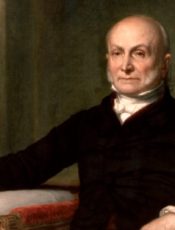In his long career John Quincy Adams was President, served in both houses of Congress, was nominated for the Supreme Court, was Secretary of State and U.S. ambassador to many of the great powers of the day. An unequaled record and one very hard to imagine ever being duplicated. He was a proud believer in his country, its constitution and its stated ideals. He had two great fears for his country.
A convinced opponent of slavery, he foresaw no way it could be ended but by the decree of a commander-in-chief during a civil war. A decree that would also end the three-fifths rule which gave the slave-owning states such predominant power. And it all came to pass, just as he feared, in the two decades after his death in 1848.
His other fear was that the behavior of America would destroy America. On 4 July 1821, while Secretary of State, he gave a speech which summarized his thoughts and hopes. It deserves to be read in full but probably the most famous section is
Wherever the standard of freedom and independence has been or shall be unfurled, there will her heart, her benedictions and her prayers be. But she goes not abroad in search of monsters to destroy. She is the well-wisher to the freedom and independence of all. She is the champion and vindicator only of her own. She will recommend the general cause, by the countenance of her voice, and the benignant sympathy of her example.
He believed that America should be an example “Her glory is not dominion, but liberty. Her march is the march of mind.” Involvement in the outside world would inevitably corrupt and destroy liberty “The fundamental maxims of her policy would insensibly change from liberty to force.” Likewise, and for related reasons, he despised the expansionism of Andrew Jackson, believed Texas should be in the Union but not by war and trickery, was skeptical of the constitutionality of the Louisiana Purchase. Better by far that these areas should, of their own free will, and in their own good time, join the Union. To compel, to war, to trick was to destroy the essence of America.
Which brings me to Diana Johnstone and her memoir Circle in the Darkness. Johnstone is a leftie – not the Bolshevik kind, not today’s kind, but an old-fashioned, very American kind – the New Deal kind. Her parents were active in the New Deal and the Roosevelt administration and she grew up with a belief that the principal job of governments was to make things better for ordinary people, wars were to be avoided and America was best off minding its own business – peace and social justice, in other words. She and Adams would have found much to agree with in each other. Her title would also fit Adam’s idea of America in the world – a bright circle of decency in the general darkness.
Johnstone’s book is a lament for the left that used to be and a relating of how, when and where it disappeared. Probably the most notable difference between her early days and today is that today’s left no longer worries about, protests against or even thinks about war. The Iraq War of 2003 was met with enormous protests around the world. They did not stop it, of course, but at least many people said no to it. Subsequent American wars in the Obama period met no protests.
His administration overthrew the Libyan government, overthrew the Ukrainian government, attempted to overthrow the Syrian government, supported the Saudi war in Yemen and continued all the wars it inherited. Not a peep of protest. Partly because Obama was a Democrat and the corporate media fawned over him as “cool” and “intellectual.” But he also moved the wars offstage – by reducing the number of troops on the ground, they became drone attacks, special service troops, contractors, bombing. Far offstage. But where are the anti-war protests against the hated Trump? He too has continued the wars he inherited (but at least started no new ones) but, on the other hand, he is throwing sanctions at everybody. Not bullets, not “kinetic”, but not exactly peaceful either – just a different way of trying to destroy the monsters. The left has become persuaded that wars are good wars, not to be protested, if they can be wrapped in a human rights package. Libya is destroyed, turned into a hellhole because Qaddafi was “bombing his own people.” Ukraine ditto because Yanukovych was “corrupt.” Assad “gasses his own people.” With the narrowly restricted control of the news media, the monsters are easily manufactured.
The Western left no longer opposes wars because the “search for monsters to destroy” has silenced them – it’s good to destroy monsters. Who names and condemns the monsters? Why the monster-destroyers of course. And, if the monster is painted sufficiently monstrous by the controlled media, then no one questions the motives of the monster destroyers; no one even asks whether the monster destroyers have motives other than pure ones. As Johnstone writes:
Once a cause was identified by the Western media-political establishment as “good,” there was a herd-like rush to join it, to show that we are so good that we will not even listen to anyone who questions it, for fear of being identified with the Evil Ones.
and
The Kosovo War marked a change in the attitude of the Left toward U.S. military intervention. An immense publicity campaign, playing on false analogies with World War II, succeeded in rallying much of the Left to the need to “do something”—and the only “something” available was NATO bombing.
The left has lost the skepticism and mistrust of the authorities which used to be one of its foundations. What does the Western left agitate about today? Human rights. But not the human rights of children murdered in Yemen or Ukraine or African slaves in Libya; it’s the human rights of sexual minorities that obsesses those who consider themselves progressives. Or tearing down statues. Neither of which impedes the real aims and interests of the monster-destroyers in the slightest. A useful diversion as far as the looters of the world are concerned. Johnstone’s book recounts how, step by step, drop by drop, the Western left has been diverted into trivia.
For around two centuries, the “Left” was the term designating the most forward-looking, creative political forces in our societies. The Left fought for the independence of Vietnam and other colonized Third World countries. Now it is absent from the whole international movement to restore national sovereignty, condemned as “extreme right.” The Left is sabotaged from within by dogmatism. When “left” is reduced to a catechism, it cuts itself off from the real world and serves only as a means to denounce or punish deviations from the creed.
Both Obama and Trump came to power promising to end the endless wars – “What I am opposed to is a dumb war. What I am opposed to is a rash war.” (Obama 2002) For the money spent in the Middle East the U.S. got nothing (Trump 2017). But the wars, the bombing, the droning continue and now Trump has added sanctions and cyberattacks to the mix. As Adams feared, once America goes looking for monsters abroad, monsters it will find. And always another after those.
And then the monsters follow you home. Despite the Obama administration’s success at making America’s foreign wars invisible to ordinary voters, the wars have been delivered to their local police departments. They have received billions of dollars of military equipment originally acquired to destroy foreign monsters. The result is – as the current spate of riots in America shows – that American police are virtually indistinguishable from American soldiers. Does dressing like a soldier make you act like a soldier? Have the citizens of America become monsters to destroy? Perhaps they are – police killed over a thousand Americans last year.
The monster-destroying has turned on America itself and is tearing the country apart. The favored candidate lost the election and blamed Russia – now everyone is told he must either agree that Russia is a monster or undergo being called dupe of that monster. “The Interagency”, formed for the monster wars, nearly got rid of a president.
Adams’ monsters roam America and the left obsesses over some lump of bronze or the label on a toilet door.










